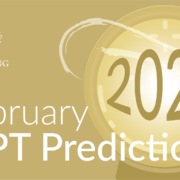Five Must-Read Tips to Self-Grade an MEE
Five Must-Read Tips to Self-Grade an MEE
Self-grading is the process of comparing your answer to the model answer and grading it yourself. Self-grading is better than simply handing your essay in to be graded because you will truly internalize the feedback you give yourself and you will remember it better. You can also do it instantly after writing your answer so that the facts are fresh in your mind. (Note: It is not a bad idea to hand your essay to a different person to be graded. Self-grading simply has distinct advantages that do not come with handing in your essay. We have our students do both—self-grade then hand it in.)
Self-grading is one of the most important parts of bar prep. You can do all of the practicing in the world, but you need to evaluate where those practice attempts go wrong (and what you do well). This post will explain how to self-grade an MEE. It really is a critical step that can’t be ignored! Maybe you’ve missed a critical fact that could have led your essay in a completely different direction. You’ll never know this if you don’t compare your answer to the model answer! Don’t be afraid to look at what you did wrong. That is how you learn! So, here are five must-read tips to help you self-grade an MEE.
Five Must-Read Tips to Self-Grade an MEE
1. Use a different color text to make corrections.
It is important to get yourself into the mindset of a grader when you self-grade an MEE. You want to be able to easily identify what you’ve done wrong so that you can improve for the next time. Don’t be discouraged if your essays have lots of added text in another color. These are just practice essays! You need to be able to easily see where you are having problems. After you’ve done a few essays, you can compare them and maybe notice patterns in your errors. If you just make additions or changes in the traditional black font, you’ll never remember were you went wrong. And you won’t be able to quickly review your essays. You don’t need to pretend your essays were perfect. When you self-grade an MEE, your goal is to learn from your mistakes. Embrace them!
2. Make sure you’ve spotted all the proper issues.
One of the most common mistakes on the MEE is not spotting the issues properly. Sometimes you’ll think you’ve written the perfect essay, but then realize you left out a substantial discussion of an entirely separate issue. When you self-grade an MEE, make sure you have identified all of the major topics that the question calls for. Go through the model answer and check to see that you’ve hit on all the key points. If you left something out, add it in! Always correct your mistakes. Think about why you might have missed that discussion, and what fact should have clued you in to its importance. After enough practice, you’ll notice that you’re adding fewer and fewer things in your self-grading process. Sometimes it takes a few essays of combing through those model answers for you to understand how to identify all the necessary key points. Just keep pushing through it!
3. Check that you’ve accurately restated the rule.
Another common mistake is not stating the rule accurately. Don’t worry about getting it word for word from the applicable statute or case – that won’t be possible for every single rule tested. It is more important that you have all of the proper elements so that you can provide a thorough analysis. When you self-grade an MEE, go through the model answer and pay attention to how it lays out the rule. Then go back to your answer and make sure you have identified all of the elements and the key language. If you missed something, type in the correct phrasing. Just the act of typing the correct answers yourself will help reinforce it in your mind. You can read about the rule over and over, but actually interacting with it is the best way to help you remember it. That is one of the goals of self-grading your essays—to force you to write out the correct answers.
4. Make sure you’ve reached the proper conclusion.
This really goes without saying, but when you self-grade an MEE you need to make sure you’ve reached the proper conclusion. You can certainly gain points for a great analysis, but you won’t be able to get that elite score without the right conclusion. Read through the model answer and identify the conclusion it reached. If you disagree, go back through the model answer’s analysis. Why did it reach that conclusion? How did it get there? What facts did it emphasize? It’s possible you still might disagree, as some essays present problems that could go either way. In that case, it is all the more important that your analysis is sound and that you have logical reasoning to get to your conclusion. Just remember, however, that the grader will be going off of the model answer when assigning you points. So give serious consideration to what the model answer is saying.
5. Evaluate whether your structure was effective.
You can have the greatest ideas and analysis in the world but it needs to be presented effectively. Look at how the model answer organized its response. It is generally most optimal to follow the rule, analysis, conclusion format. Present a rule, analyze it, and offer what conclusions can be reached from it. When you self-grade an MEE, put yourself in the mindset of the grader. Don’t force the grader to jump around your essay, looking for a rule you mentioned way earlier or a fact that was offered at the wrong time. Evaluate how your essays flows, whether you’ve left anything hanging only to return to it at an awkward time. If your essay sounds awkward to you, play around with it when you self-grade. Make sure that your headings were effective. If they weren’t (or if you didn’t have any!), add some in! During practice, your essay doesn’t have to be perfect on the first try. All that matters is that you’re learning how to make it better for the next time.
If you’re looking for more information on how to self-grade (and its benefits!), check out this post on how and why you should self-grade bar exam essays, and this post on how to study MEE sample answers!
Seeking MEE Expertise?
🌟 Freebies & Discounts
- Free Bar Exam Resource Center: Explore for leading guides, articles, and webinars.
- Expert-Crafted Bar Exam Guides: Unveil insights on high-frequency MEE topics and strategies for success.
- Free Webinars: Engage with top bar exam experts.
🔥 Top-Rated MEE Resources
- MEE One-Sheets: Boost your confidence with our most popular bar exam product!
- Bar Exam Outlines: Our comprehensive and condensed bar exam outlines present key information in an organized, easy-to-digest layout.
- NEW MEE Mastery Class: Unearth focused, engaging reviews of essential MEE topics.
- Bar Exam Crash Course and Mini Outlines: Opt for a swift, comprehensive refresher.
- MEE Private Tutoring and feedback: Elevate your approach with tailored success strategies.
- MEE Course: Preview our acclaimed five-star program for unmatched instruction, outlines, and questions.
🔥 NEW! Dive deep into our Repeat Taker Bar Exam Course and discover our unrivaled Platinum Guarantee Pass Program.





